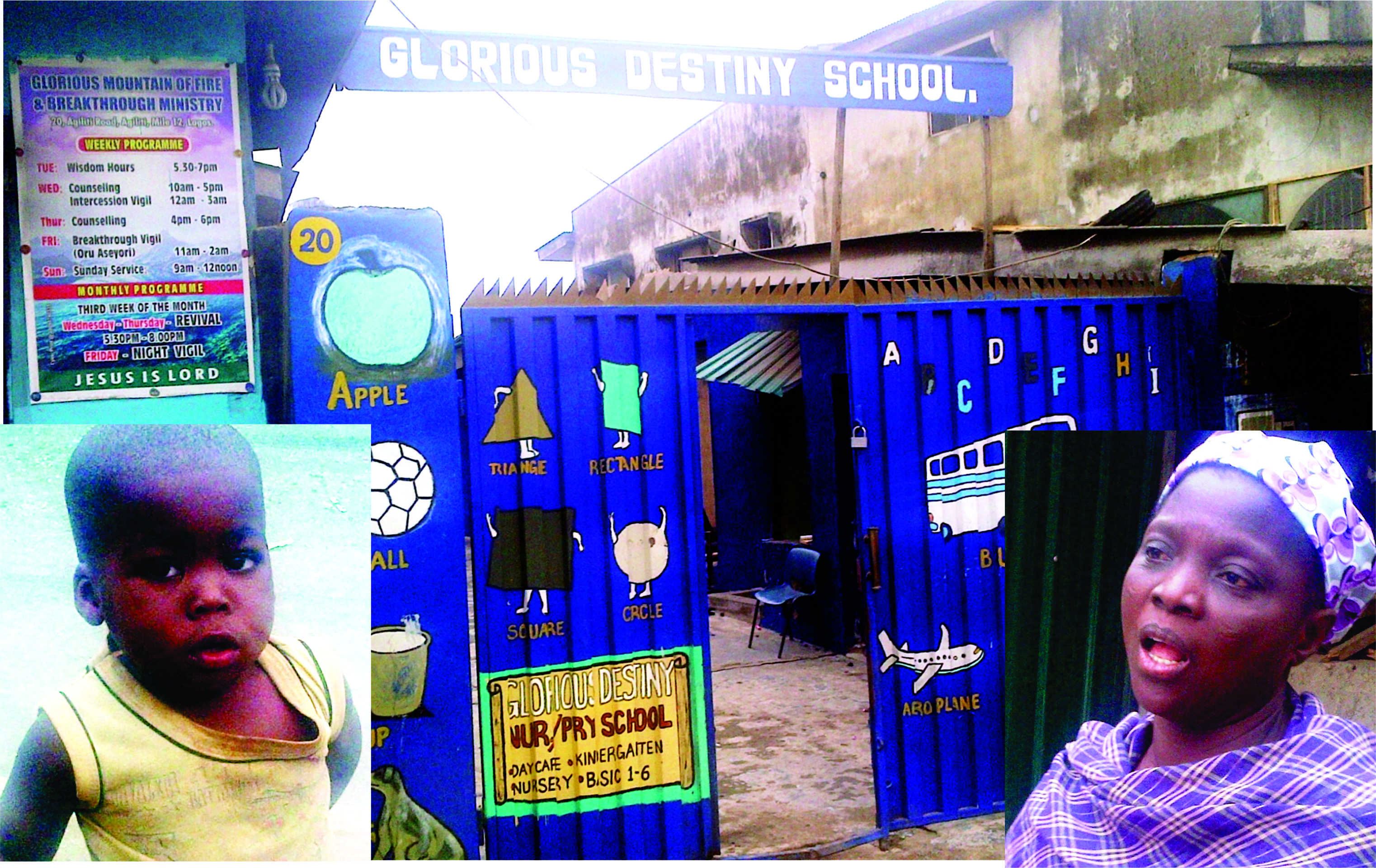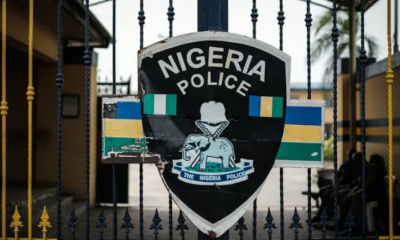Hundreds of ethnic rivals tramped across a bridge that symbolises unity to commit the first infanticide in Nigeria’s most cosmopolitan state. And they nearly succeeded
By Segun Elijah
Fatai Maliki is two. And he was happy as he tugged at his mother’s wrapper in front of the Glorious Destiny School torched by the Hausa men who invaded his school Thursday afternoon.
He wouldn’t have understood what happened, or why people milled around in front of the now charred building that was his school as of Wednesday.
But his mother and the school proprietor, Mrs Elizabeth Oyeniyi, can relive the experience: Twenty children, including Maliki, were the targets of the arsonists who pounded the school gate the day Agiliti went up in flames. It was a conflict between two ethnic enclaves in Lagos: Mile 12 peopled by the Hausa and Agiliti area the Yoruba claim is theirs. And the children, trapped inside the school located at the Agiliti end of a 400-metre-long bridge connecting the two communities, happened to be the sitting ducks.
The marauders’ intention couldn’t have been mistaken, looking at their action. “They were armed with axes, cutlasses, cudgels, and jars of fuel,” Oyeniyi told the National Daily. The building was also well marked enough to tell the dumbest of murderers it was a school building where pupils were trapped. The oldest of the entire schoolchildren population is about 11, according to her. So the invaders knew whom they were up against: kids.
“They were beating the gate and shouting, ’Slaughter! Slaughter!! Open the gate,” she said. There are about 100 children on the school roll. But the Hausa-Yoruba violence that erupted Wednesday made many of the parents keep their children at home. Only 20 came the following day. And more than 150 men suspected to be Hausa traders from the Mile 12 market attempted to kill them all.
No resistance of any kind was put up. The neighbourhood youth, mostly Yorubas, trying to form a phalange initially had been dispersed by the police firing teargas canisters.
All Oyeniyi and some of her teachers could do was bolt the iron gate harder, and fret a bit more until it was certain the attackers would charge through in minutes. And just about then, her flight instinct came stronger. Oyeniyi, a pastor’s wife, said it was the Holy Spirit fluttering. So they hit the idea of taking out some louvres from the rear window of one of the classes. And the children were hunched through the strait one at a time.
It wasn’t over yet. There is a 15-foot high fence to scale to safety. And fortunately there was a ladder lying idle on the premises. “We were taking the children up the ladder, throwing them into waiting hands on the other side of the fence,” she said.
Probably thinking the story was hard to sell, Oyeniyi’s neighbour, whose compound the children were hauled into, interrupted. “Those ‘mallahs’ wanted to kill the children,” he emphasised.
Killing the Glorious Destiny schoolkids probably meant little to the attackers. But the school would have lost no fewer than 20 children and some adults—all in one shake. “There’s a woman who even has all her six children in our school,” the proprietor said. “How can any human being attempt to do that to children?” Another parent whose child was among the 20 said, with an undertone of ethnic discontent.
By now the kids and their teachers were clean gone over the fence. And the marauders were already on the school premises. Since no human was in sight to slaughter, the advancing Hausa attackers, according to Oyeniyi, lit the building.
A reprisal was imminent. Some of the Agiliti youth headed for Allen High School, a private school some kilometres away from Maliki’s. There are no fewer than 50 Hausa children known to be attending Allen. And they were all present that day. Which was why the second cut, this time, would have been the deepest. But the Hausa children were securely tucked away in the building by the school proprietor, an Urhobo man, until their parents, backed by soldiers, came to take them away. And Allen, unlike Maliki’s school, is still standing.
Joseph Adekunle Adewumi, Agiliti’s Community Development Association chairman, said it’s not in the Yoruba culture to kill children. Had the invaders from Mile 12 succeeded in killing the schoolchildren? “We wouldn’t have retaliated in any way. We know the right thing is to report to the police—like we did when this crisis began,” he said.
“But you can see what they did to the school when the police teargassed our youth defending Agiliti.”

 Entertainment5 days ago
Entertainment5 days ago
 Health1 week ago
Health1 week ago
 Health4 days ago
Health4 days ago
 Football1 week ago
Football1 week ago
 Football1 week ago
Football1 week ago
 Crime4 days ago
Crime4 days ago
 Education6 days ago
Education6 days ago
 Crime1 week ago
Crime1 week ago











